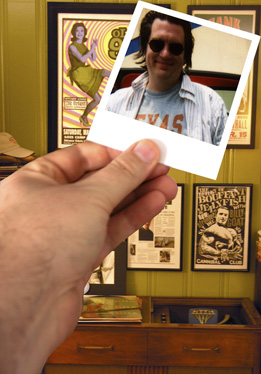Just finished Christopher Hitchens’ Letters to a Young Contrarian, and I feel motivated and repelled by his philosophy at the same time. The best example of his ethos follows:
“So I have no peroration or clarion note on which to close. Beware the irrational, no matter how seductive. Shun the transcendent and all who invite you to subordinate or annihilate yourself. Distrust compassion; prefer dignity for yourself and others. Don’t be afraid to be thought arrogant or selfish. Picture all experts as if they were mammals. Never be a spectator of unfairness or stupidity. Seek out argument and disputation for their own sake; the grave will provide plenty of time for silence. Suspect your own motives and all excuses. Do not live for others any more than you would expect them to live for you. (p. 140)
Hitchens believes in rational, empirical thought. He’s a cogent thinker and lucid writer. He takes no quarter and expects none. He’s a humanist and believes in the dignity of humankind. Liars, charlatans, dictators and anyone of a religious bent are apt to find themselves in his crosshairs.
But to me, the major flaw in his worldview his absence of the transcendent, the notion that there is something larger than ourselves that tie us together. There’s no God in his universe. He admires Dietrich Bonhoffer and Martin Luther King Jr., but doesn’t understand or appreciate how their faith sustained them through their dark moments. And the Dalai Lama – don’t even get him started.
A lesser flaw is that he assumes we live in a rational world. After 9-11, Abu Gharib, Hurricane Katrina and – how many seasons of Survivor and American Idol? – forgive me, but I can’t make that assumption.
Behind his veneer of cynicism, he is an idealist and a bit of a utopian, but I guess you must be in order to be a contrarian. Case in point: he’s especially wary of tribalism and any setting apart of a group for national, racial, religious, political or other reasons because it can “make people accept lethal and stupid conditions” (p. 104).
I agree with him to a point. As much as I wish everyone could see themselves as citizens of the world, people are going to view the world through the prism of their own experience, and where you are from, how you are raised and the God you pray to (or don’t pray to) will influence that for most people. People choose sides.
And even Hitchens understands this, but believes that people should choose their sides based on conscience rather than tribe:
”Dante was a sectarian and a mystic but he was right to reserve one of the fieriest corners of his inferno for those who, in time of moral crisis, try to stay neutral.”
I agree with this to the hilt. But I am also not naïve enough to think that people will always choose the moral high ground over allegiance to the group. We see this today in the moral ambivalence that many Americans have over the use of torture as an instrument of national security. If it keeps us safe, the reasoning goes, maybe a little torture isn’t so bad.
His world is not one of grays – it’s black and white. “The truth cannot lie, but if it could it would not lie somewhere in between. On some grave questions, there is no difference to be split; one does not look for a synthesis between verity and falsehood….(p. 20)” Me, I’m all about the gray. He’s right, on some questions there is no middle ground. But I think his list of questions is much longer than mine.
I admire Hitchens for his thinking, his writing and his moral compass. Taking a page out of Rilke’s book, he recognizes the value of going inside oneself on voyages of self-discovery:
”I do warn you that if you feel capable of going into internal exile and living against the stream, you can expect some dark nights of – all right – the soul. But then to undertake this and to then seek external or invisible aid would be to miss the point. A degree of solitude and resignation is necessary to begin with. Some people can’t bear solitude, let alone the idea that the heavens are empty and that we do not even succeed in troubling their deafness with our bootless cries.” (p. 66)
But where I am truly heartened by his example is when explains that being a contrarian is something you are, not something you do. I deal with this impulse in my own life – I see things a certain way and I’m not afraid to share my opinions. I can’t be any other way. It has cost me jobs, but I have never been one to pretend the emperor has no clothes.
But that’s OK, Hitchens says. Pick a side, dig in, arm yourself with facts and fight like hell. As the Romans would say, “Do justice and let the skies fall.”

No comments:
Post a Comment